Have you ever eaten Turkish food and wondered how you can make those dishes with little effort and no time? You have? Well, worry less and read on, because I’m here to tell you how to prepare the most common Turkish-inspired dish with easy-to-find ingredients for, namely, börek. The main ingredients are feta cheese, dry parsley, puff pastry, eggs and sesame seeds, and that’s about it!
As you can see, I haven’t given you any information about how much you need of each ingredient. That’s because my mother used to say “watch and learn – I don’t do measurements! You need to learn that for yourself!” Harsh, right? But it actually helps, because once you figure out just the right amount or what you like best after some maybe disastrous first attempts, it’ll taste just perfect!
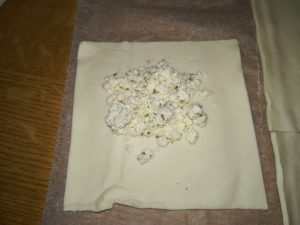 Let the cooking adventures begin!
Let the cooking adventures begin!
Now, let’s start! This most classic Turkish dish, which is basically a type of dumpling, comes in all kinds of variations. Normally, you need to get up early in the morning to prepare the dough and leave it to rise for several hours until it’s ready to use. But we’re lazy students with no time and energy to do that, so we’re just going to take simple puff pastry, also known as Blätterteig.
Secondly, take your cheese and knead it in your palms to make it all mushy and mix it in with some dry parsley. This mixture is probably the most common one to fill your dumplings with, but you can also take mashed potatoes, minced and seasoned meat or even spinach, but that would take far too long to prepare and no student has time for that!
It’s coming together…

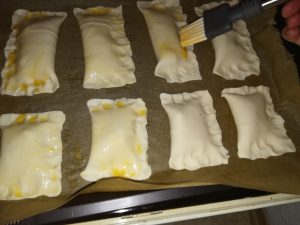
Now it’s time to cut your puff pastry into square shapes. Then, you take your cheese and parsley mixture and put about one spoonful on each square. Fold the square in half, covering the cheese and squeeze the edges together, so that it looks like a small cheese-filled dough bag. Now, maybe heat up your oven to about 200°, or maybe don’t, to each his own. I don’t think that’s necessary unless you’re baking cookies or something. Anyway, now you beat some eggs, put sesame seeds in it and mix it all together. This is what you coat your dumplings with, so that they don’t end up too dry on the top. And that’s about it! Just shove your tray in the oven and bake everything for a good 10 to 20 minutes, and keep on checking on them. As soon as they turn golden brown, they’re done! It takes absolutely no time to prepare once you get the hang of it, and it’s a nice alternative to eating noodles with pesto every day!
Bon appétit and good luck! Just don’t burn your kitchen down, maybe…
Text & Pictures: Filiz Özer

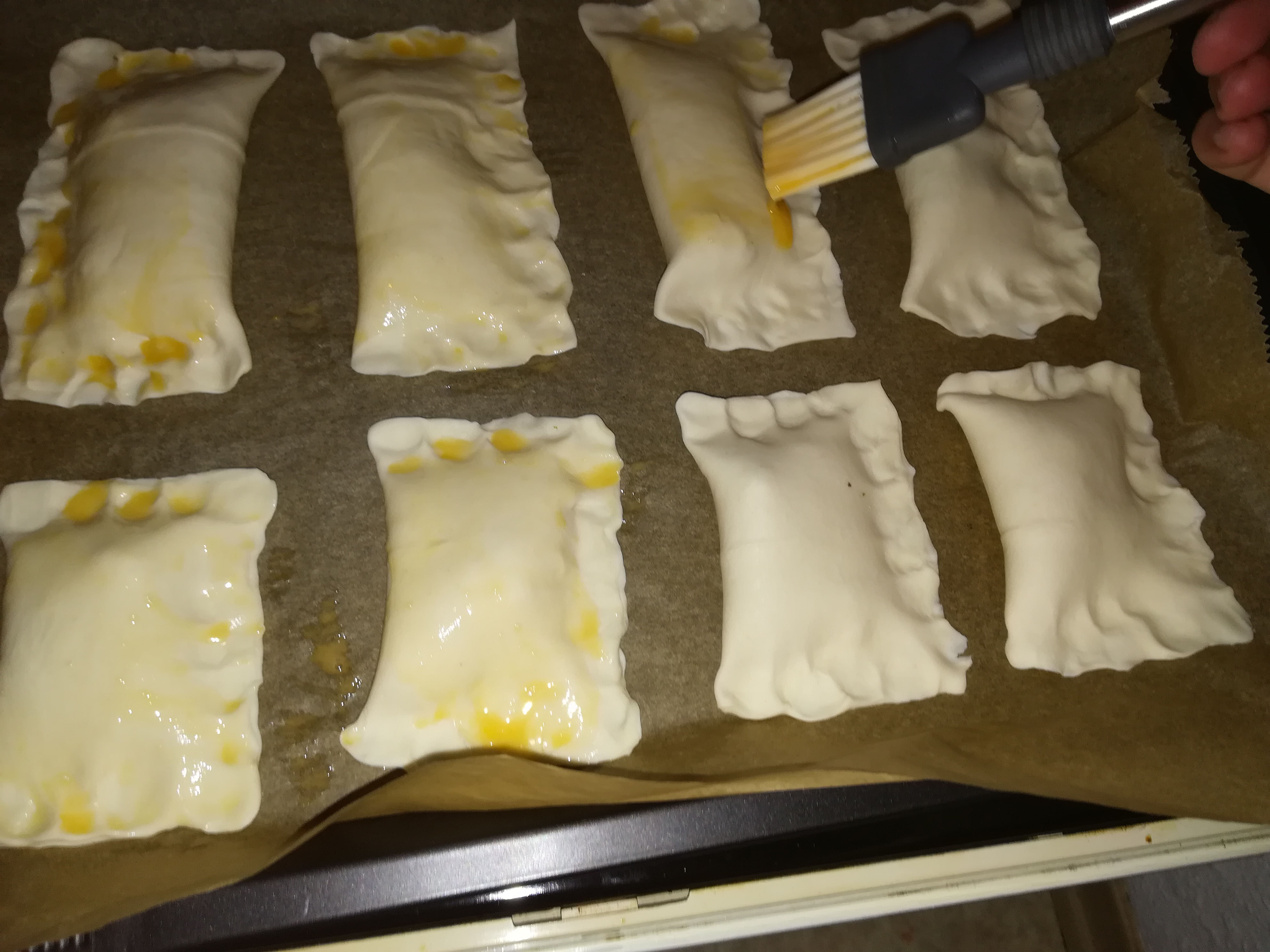

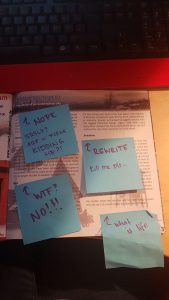
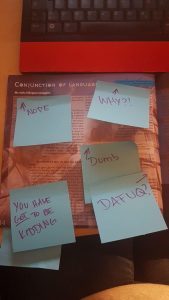
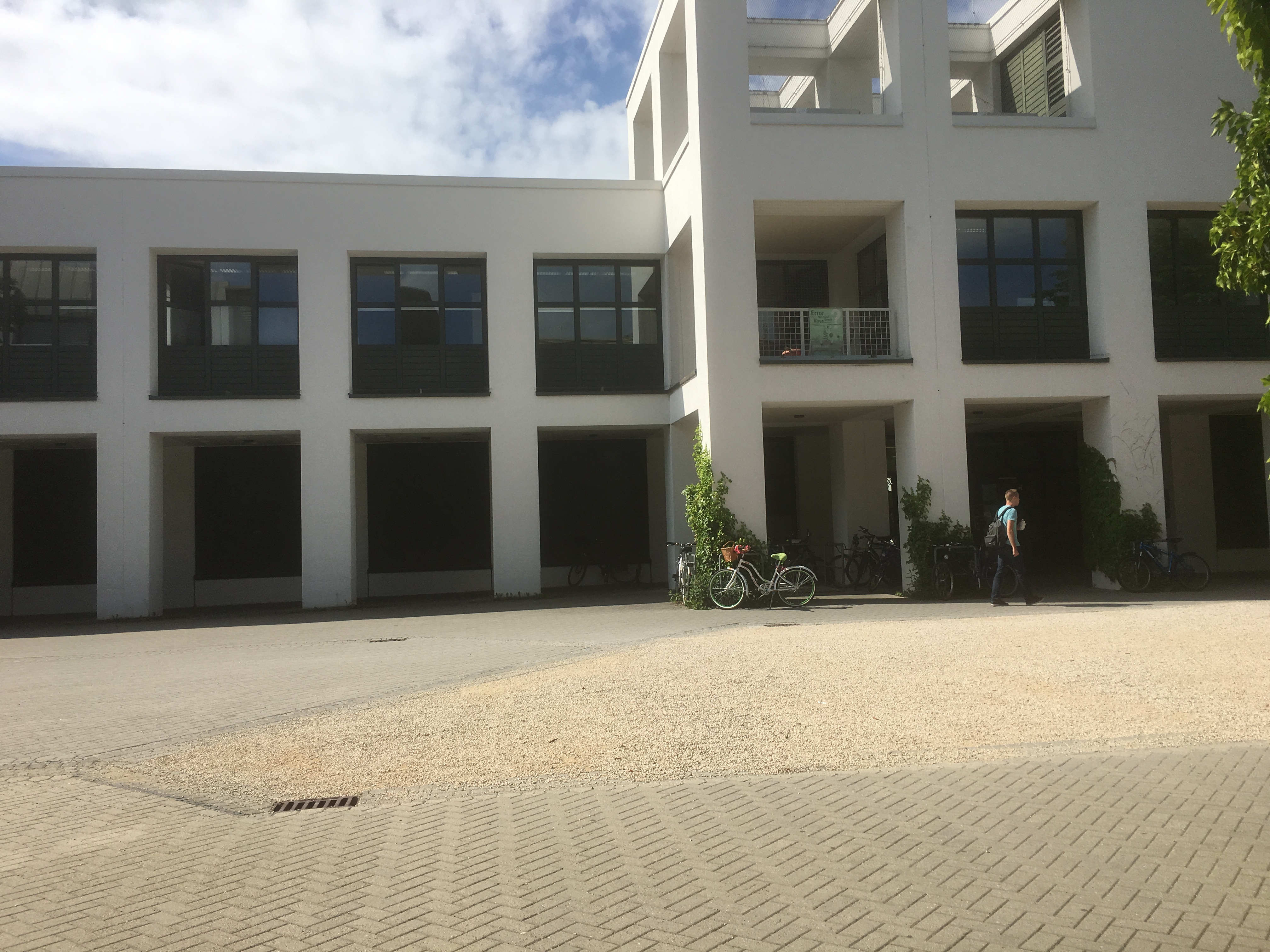
 A large room that fits forty or more people, about 8-10 people squeeze into the tightly arranged rows. Friends sit together; the group is spread around the room, though, leaving a couple of rows empty as no one wants to sit in the first row. An exhausted lecturer scurries in quickly. It’s mid-summer and hot. He had to walk quite the distance from his office to the oversized lecture hall where the small group will spend the next one and a half hours – or maybe even three.
A large room that fits forty or more people, about 8-10 people squeeze into the tightly arranged rows. Friends sit together; the group is spread around the room, though, leaving a couple of rows empty as no one wants to sit in the first row. An exhausted lecturer scurries in quickly. It’s mid-summer and hot. He had to walk quite the distance from his office to the oversized lecture hall where the small group will spend the next one and a half hours – or maybe even three.  What happened?
What happened?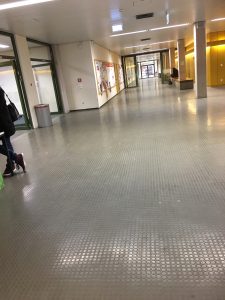 What’s the outcome?
What’s the outcome?
 a screen all day every day. That’s right, your mother had a point when she told you to put your phone away. But relax
a screen all day every day. That’s right, your mother had a point when she told you to put your phone away. But relax 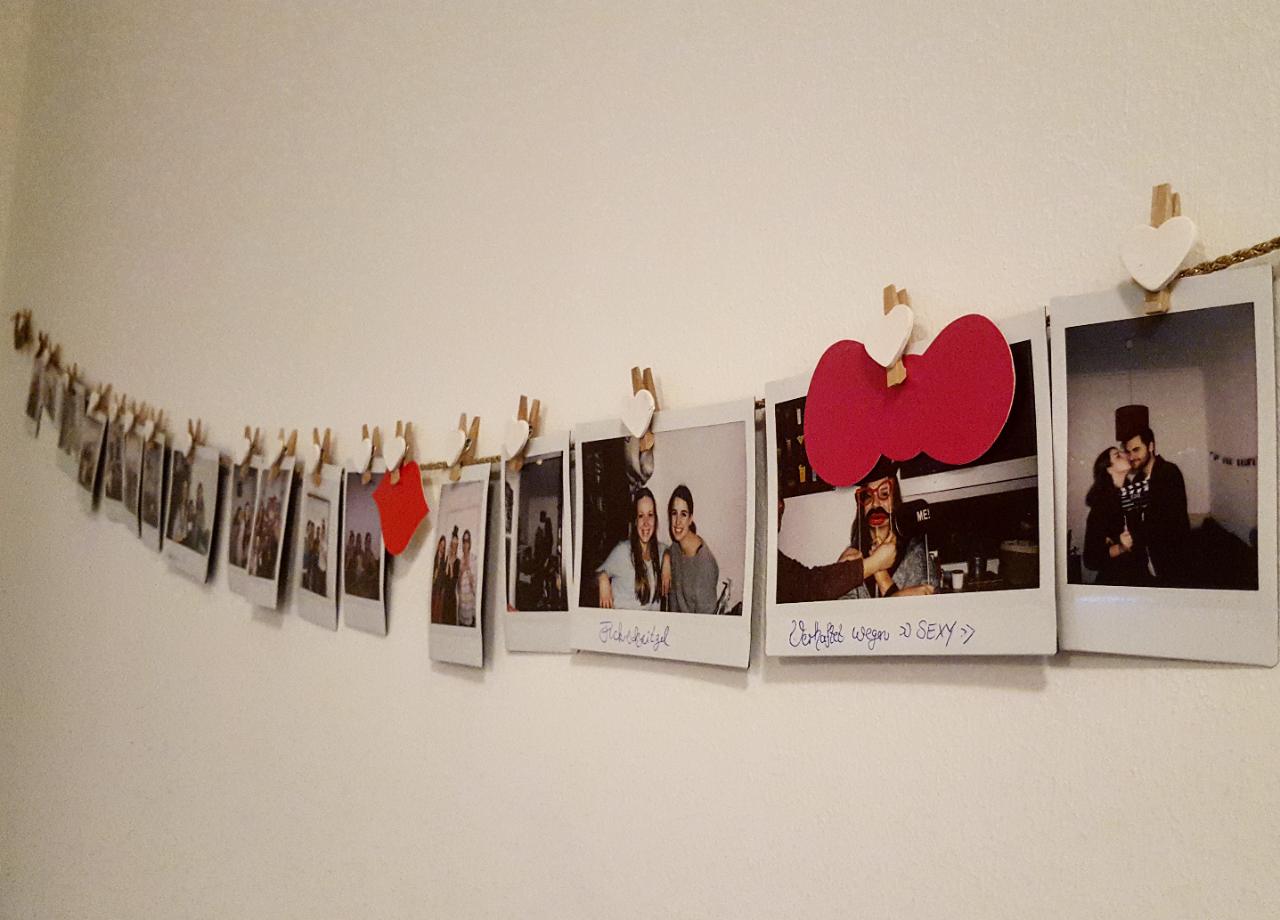
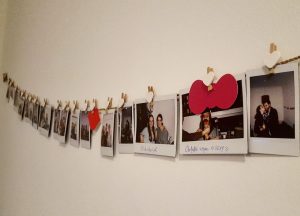

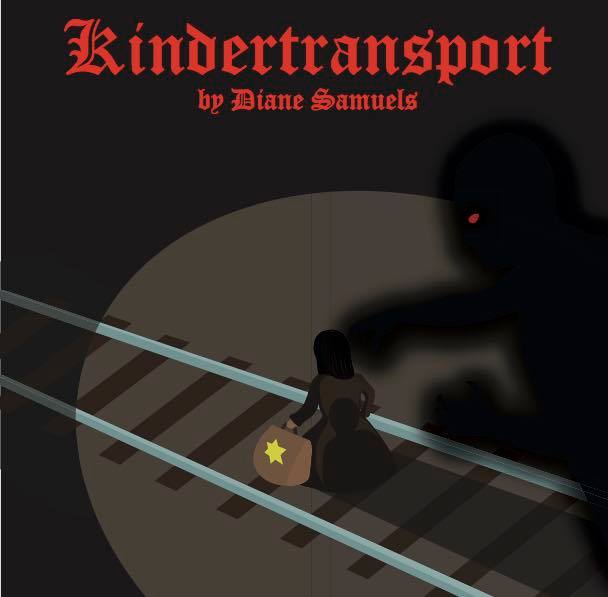
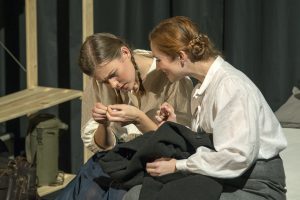 On stage, we meet a mother and her child; the mother is teaching her daughter to sew a button on her coat. The girl is about to leave – without her parents. And she’s only nine years old. She doesn’t want to leave, but the mother promises to join her later. “When is later?” “In a month, or two…”
On stage, we meet a mother and her child; the mother is teaching her daughter to sew a button on her coat. The girl is about to leave – without her parents. And she’s only nine years old. She doesn’t want to leave, but the mother promises to join her later. “When is later?” “In a month, or two…”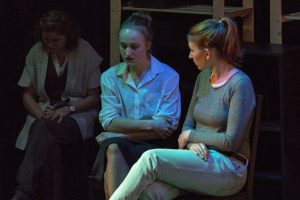 Kriss), has been given a naturalisation certificate and changed her name as well as her birthday. She has got rid of her past as a Jewish-German child that was sent away to England for safety reasons. Her daughter, Faith, didn’t know about her mother’s past and by chance finds out about it while she’s rummaging through her own childhood treasures in the attic.
Kriss), has been given a naturalisation certificate and changed her name as well as her birthday. She has got rid of her past as a Jewish-German child that was sent away to England for safety reasons. Her daughter, Faith, didn’t know about her mother’s past and by chance finds out about it while she’s rummaging through her own childhood treasures in the attic. The AnglistenTheater has succeeded in bringing these struggles to life in the flashbacks during the play between the “now” and “then”. They take the audience on a journey through the life of a young girl who is developing into a woman that at some point has developed into the mother we see in the “now”. To a great extent, this is director Rudolf Beck’s achievement, of course. But there is so much more that makes this production an outstanding experience. Both the stage and costume designs as well as the light and sound help to draw you right into the story; the actors’ marvellous skills make everything absolutely believable. They all played their parts extremely well and if I had to choose, I couldn’t say which performance I liked best. But I imagine that it must have been very difficult to play the young Eva and the grown-up Evelyn in such a convincing way that you can almost feel all the emotions yourself.
The AnglistenTheater has succeeded in bringing these struggles to life in the flashbacks during the play between the “now” and “then”. They take the audience on a journey through the life of a young girl who is developing into a woman that at some point has developed into the mother we see in the “now”. To a great extent, this is director Rudolf Beck’s achievement, of course. But there is so much more that makes this production an outstanding experience. Both the stage and costume designs as well as the light and sound help to draw you right into the story; the actors’ marvellous skills make everything absolutely believable. They all played their parts extremely well and if I had to choose, I couldn’t say which performance I liked best. But I imagine that it must have been very difficult to play the young Eva and the grown-up Evelyn in such a convincing way that you can almost feel all the emotions yourself. What I especially liked was the great sound design (Josef Demling). For example, when the ratcatcher (Ian Steffy) – a recurring figure in the play – makes his first appearance by sneaking in from behind the audience, a beautiful but at the same time eerie melody accompanies the action. We hear this lovely, dazzling tune during all his appearances. Whenever you hear it, it feels like it’s hitting something deep inside you and almost makes you want to jump up and follow the ratcatcher and his flute.
What I especially liked was the great sound design (Josef Demling). For example, when the ratcatcher (Ian Steffy) – a recurring figure in the play – makes his first appearance by sneaking in from behind the audience, a beautiful but at the same time eerie melody accompanies the action. We hear this lovely, dazzling tune during all his appearances. Whenever you hear it, it feels like it’s hitting something deep inside you and almost makes you want to jump up and follow the ratcatcher and his flute.
 After an even later breakfast on Sunday, the bags have to be packed. Being tired (and sometimes a bit hungover), you realize what’s coming: a train ride, lasting longer than an eternity; then a tram ride, most often packed with smelly people next to you; an exhausting walk home, because you don’t have one of those trendy suitcases with wheels on them and your bag gets heavier and heavier with each step you take. You’re finally there, so you unpack your bags, put your home-laundered clothes into your wardrobe, and store the food you brought in your fridge. Sleepily, you sink into your bed and as you’re about to fall asleep, you suddenly remember: there was homework due tomorrow!!!
After an even later breakfast on Sunday, the bags have to be packed. Being tired (and sometimes a bit hungover), you realize what’s coming: a train ride, lasting longer than an eternity; then a tram ride, most often packed with smelly people next to you; an exhausting walk home, because you don’t have one of those trendy suitcases with wheels on them and your bag gets heavier and heavier with each step you take. You’re finally there, so you unpack your bags, put your home-laundered clothes into your wardrobe, and store the food you brought in your fridge. Sleepily, you sink into your bed and as you’re about to fall asleep, you suddenly remember: there was homework due tomorrow!!!